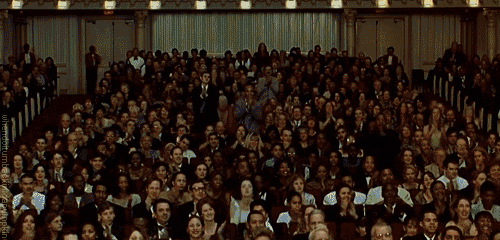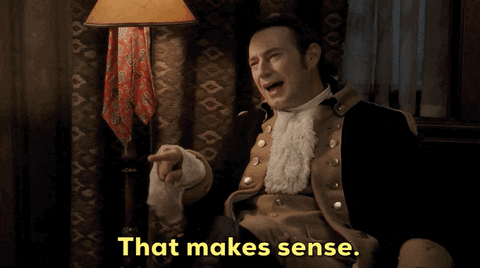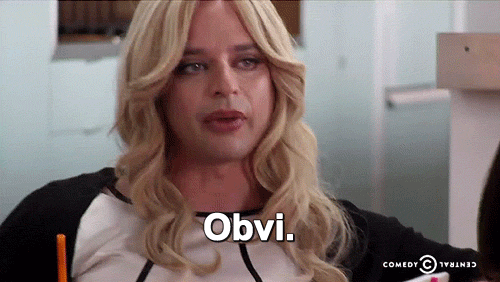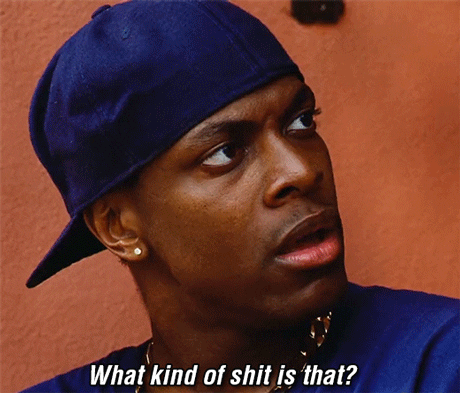Issue #127
Guten Morgen! Rise and shine! This week, our wonderful guest contributor, Dr. Steven E. Sokol, President & CEO of the American Council on Germany, is back again to give us his take on Germany’s ability to deliver on some crucial security issues. Then, take a look at our main articles for a lesson in chemistry, and how the German far-right party Alternative for Germany is managing to make a joke of itself in the European capital. Finally, check out Anna’s WOOM to find out why showing off might actually land someone in jail. As always, happy reading! Anna Szilvia The PFASt and the Pfurious About a month ago, the European Chemicals Agency quietly launched a six-month consultation, calling for “scientific and technical information on the manufacture, placing on the market and use of per- and polyfluoroalkyl substances (PFAS).” PFAS are a class of thousands of chemicals used to make coatings and products that resist heat, oil, stains, grease, and water. As one may be able to infer from these properties, many industries use PFAS for their products – the semiconductor/chips- and automotive industries being two major examples. It also needs to be mentioned here that PFAS also have another name: “forever chemicals” due to the fact that they take hundreds of years or longer to degrade. Traces in the body can also lead to liver damage, fertility issues, and cancer. The consultation is meant to inform decision-makers whether a total ban on PFAS chemicals is feasible and sensible. This has led to quite the lobbying showdown. On one side, you have the usual suspects: Tech companies, chip manufacturers, industry associations, and the automotive sector. All of them have a different version of the same narrative: we won’t be able to produce without them and the EU won’t reach its own economic competitiveness- and sustainability goals (because you need green tech that helps reach these goals, which need… you guessed it… chips). Their conclusion: don’t ban all of them, only targeted ones. On the other side, you have some national governments like Germany, the Nordic countries, and the Netherlands, along with environmental- and consumer protection organizations. Apart from pointing out the obviously harmful, long-lasting effects these chemicals have, this side brought another compelling argument: if the regulator has to prove individually that 4,700 different chemicals negatively affect humans, the task will never be completed. That one’s gonna be hard to disprove. So, if you have any spare scientific evidence lying around, now’s your time to share it! Please Exit Stage (Far, Far) Right Alright ladies and gentlemen, it is time for some good old Schadenfreude. This week, we got wind of corruption allegations circling around one of Brussels’s least favorite dinner party guests, German far-right Member of European Parliament (EP) Maximilian Krah. To give you an idea of who we’re dealing with: just this week, his Twitter included some classics like (and please excuse me if I’m slightly paraphrasing here): “let’s talk more about race in Germany as most violent crimes in Denmark are committed by Somalis, Lebanese, and Iraqi individuals,” “the Great Replacement theory is playing out in Germany as we speak,” and “I will continue to call trans women men if I damn well please.” As you can tell, he’s a real piece of work. Anyways, this week Krah was knocked down a notch recently when – and this surprised us – the European Union’s anti-fraud office (OLAF) actually served its function. Allegedly, Krah rigged the bidding system for a public contract in favor of a communications firm to which he has ties to. While the files are still closed due to the ongoing investigation, there must be some substance to the findings as OLAF wrote the European Public Prosecutor’s Office (EPPO) to investigate the matter. This step is important indeed, as, unlike OLAF, the EPPO has the power to sanction or prosecute MEPs. According to inside information, OLAF was able to link Krah and his chief of staff to all three companies who were bidding for the tender, raising questions of whether there was illegal collusion. Krah denies any wrongdoing and blames one of his co-far right German MEPs Nicolaus Fest for tipping off OLAF. Nonetheless, Krah has already been suspended from his political group, ID, and all we have to say is: by all means, let the far right tear each other apart in an election year! Source: Eurostat THE (GUEST) HOUSE’S VIEW: by Dr. Steven E. Sokol, President and CEO of the American Council on Germany The Clock is Ticking for Germany… Germany has certainly come a long way over the past 14 months, but the question remains whether it will live up to the promises laid out in Chancellor Olaf Scholz’s Zeitenwende speech – which presented a major policy pivot on energy, foreign, and defense policy – and how long that will take. The clock is ticking as Germany works through what this means and as it maps out a new security structure. Four Key Issues Germany’s Energy Transformation Giving credit where credit is due, Germany has cut its dependence on Russian oil and gas and made a massive commitment to renewables. Even before Russia’s invasion of Ukraine, the new Ampelkoalition was determined to dedicate considerable effort to climate an energy reforms. Its aim was to accelerate renewables growth, the hydrogen ramp-up, the decarbonization of the heating and transport systems, as well as power grid expansion. The war has given a new impulse for Germany’s Energiewende and the goals outlined in the coalition agreement – despite ramping up the use coal and other fossil fuels to power Germany’s economy in the short-term. In the space of nine months, Germany reduced its import of Russian gas (from 55 percent) and oil (from 40 percent) to zero. It built three LNG terminals in record time – after months (if not years) of waffling on investing in LNG. And two more are on the way. Military Support for Ukraine After the former Defense Minister’s gaff about delivering 5000 helmets, Germany has stepped it up and provided Gepard anti-aircraft tanks, self-propelled howitzers, rocket launchers and air defense systems. Germany has committed to sending some 40 Marder infantry fighting vehicles and is working with its European allies to send two battalions of heavy battle tanks to Ukraine. There is no doubt that this equipment is making a difference on the battlefield. Germany has also trained thousands of Ukrainian soldiers. Overall, Germany is the largest contributor of military aid to Ukraine in the European Union. However, each decision to provide military support has taken a painful amount of time – to the point where some have asked if it is too little and too late. While the military support is essential to shore up Ukraine’s defense against Russia, it falls short of facilitating a decisive victory. Refugees in Germany Since the start of the war, Germany has taken in over one million refugees from Ukraine – most of whom are women and children. The integration of Ukrainians into German society and the labor market has happened more smoothly than during previous refugee crises. The Ukrainians have been provided health insurance and the benefits of Germany’s social welfare system. Over 200,000 Ukrainian children are attending German schools. One of the main challenges remains housing – particularly in cities like Berlin. After absorbing over a million refugees largely from the Middle East in 2015 and 2016, taking in another million from Ukraine is quite a feat. But, this has unleashed a debate over “first and second class” refugees. The influx of refugees has also become a point of contention in political debates. Relations with China We have certainly seen a radical shift in Berlin’s Russlandpolitik since the start of the war, but to what degree is it drawing lessons regarding the downside of dependency in its policy toward China. The government has been working on a new China Strategy – which is supposed to be released on the heels of a new National Security Strategy, but no one seems to know when that will be. In the meantime, Germany seems to be conflicted when it comes to China. There are debates over the amount of Huawei components in the German telephone network and over the proposed sale of part of a terminal in Hamburg harbor to the Chinese COSCO. Germany – together with other EU member states and even the United States – needs to reduce dependencies on China and strengthen the resilience of supply chains in light of how vulnerable one can become if one is too dependent on another country. Getting down to Brass Tacks In three of these cases – weaning itself off of Russian energy, providing military support to Ukraine, and absorbing Ukrainian refugees – we have seen that Germany can get things done when it needs to. The jury is still out when it comes to relations with China. In the context of bringing the three LNG terminals online, Chancellor Scholz said this was happening at Deutschlandgeschwindigkeit – or “German speed.” But why does it take so long to get there? One is reminded of the Winston Churchill quote that “the United States can always be relied upon to do the right thing — having first exhausted all possible alternatives.” Today, just substitute “Germany” for “United States.” The difference, however, may be that people are not always in fact sure Germany will do the right thing. It seems sort of ironic that it took the war in Ukraine to serve as a catalyst to fast-track Germany’s plans for an Energiewende away from fossil fuels to renewables. In the short-term, Germany’s use of fossil fuels will increase – but after years of discussion, we are seeing real steps to reduce emissions in the mid- to long-term. At a recent conference in Washington, DC, Bundestag member Dr. Norbert Röttgen (CDU) said that “the clock is ticking for Germany and Europe” in terms of showing “leadership reliability.” Regardless whether Joe Biden remains in office or someone else gets elected, Germany needs to demonstrate that it can take decisive action. It needs to start building its capabilities – not as a counterweight to the United States but in the context of shared common goals. Chancellor Scholz has said that Germany will help Ukraine for “as long as it takes.” But we have yet to hear a definition of what that means. He and his government must continually make the case why the war in Ukraine is so vital and why it has deep implications beyond Ukraine’s borders. China is an economic trading partner, but also a rising threat to Germany economic prosperity and security. The post-Cold War era – when Germans could assume the world around them was peaceful and that economic interdependency alone was the solution – is over. Tick tock, tick tock… FAME WHERE FAME IS DUE Volodymyr Zelensky and the Ukrainian people have been awarded the Karlspreis this year, the oldest and most know price in Europe, honoring individuals or institutions who in a significant way contributed to the European idea and unification. The prize ceremony is always held in Aachen, a city in western Germany, which the prize’s namesake, Charles the Great, declared to be his favorite. After past laureates like Angela Merkel or Emmanuel Macron, Zelensky as well is expected to attend in person. A stopover in Berlin, while in Germany, seems just logical, and it most certainly isn’t the worst idea to meet Chancellor Scholz in person, especially in the light of a sometimes controversial discussion about the ongoing support for Ukraine. On the other hand, no one can deny that Zelensky is a target, and any trip significantly raises the danger he is in already. Highest security thus is needed, and meticulous planning required. Plus, secrecy about all the details until the very last minute. Everyone knows that right? And everyone that doesn’t, arrives at this conclusion after thinking about it for about 7 seconds. Everyone, except for…the Berlin police. Apparently one of the officers involved in the planning couldn’t resist the temptation of 5 minutes of fame, and unhesitatingly shared not only dates, but routes, and even the hotel Zelensky is supposed to stay in. Is, or WAS supposed to, because, well, Kyiv is pretty pissed, and rightly so, and Zelensky might very well cancel the trip. And as for the police officer, he will get his 5 minutes of fame, in court at the latest. An investigation into betrayal of state secrets has already been launched. Issue #127


FIRST, SOME SOLID INTEL:
TAKE A BREAK, GIVE YOUR EYES A REST.
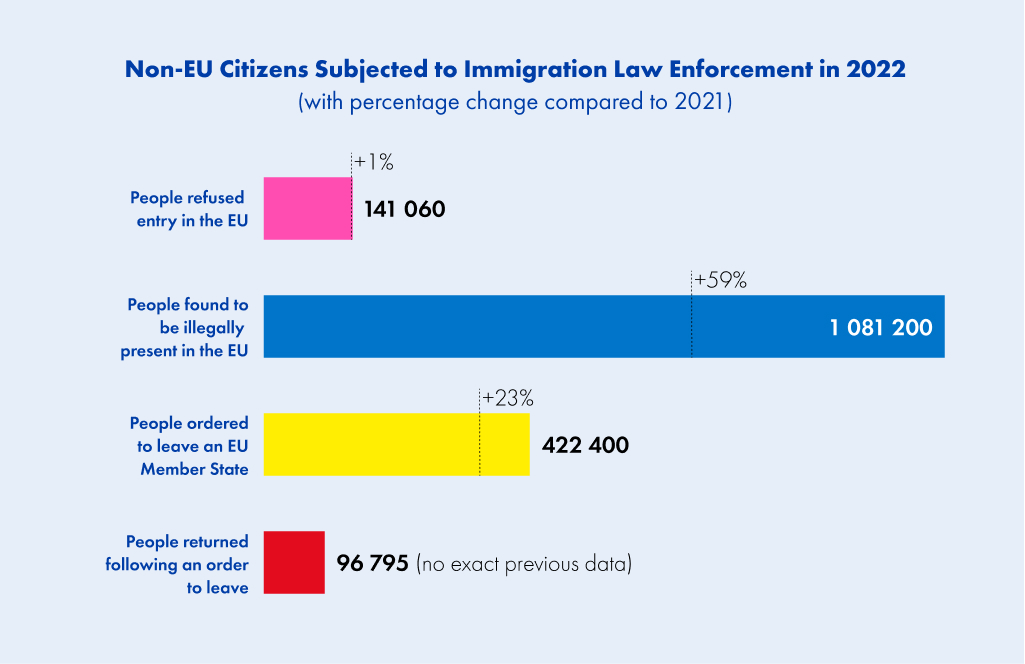
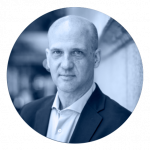
LONG STORY SHORT:
WHAT’S ON OUR MINDS:
